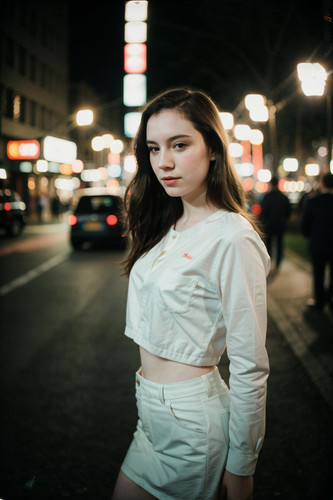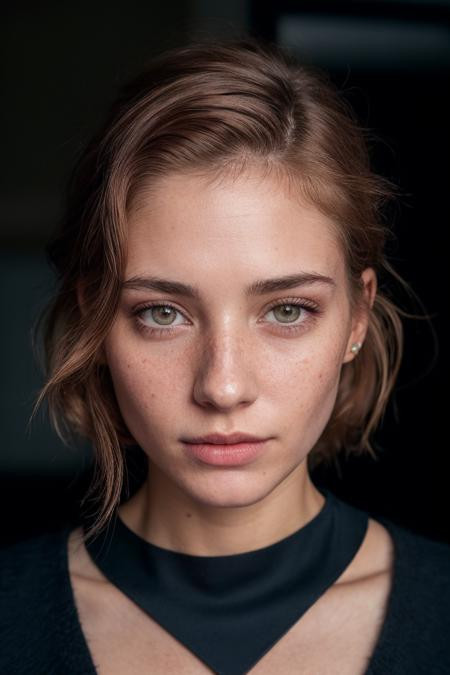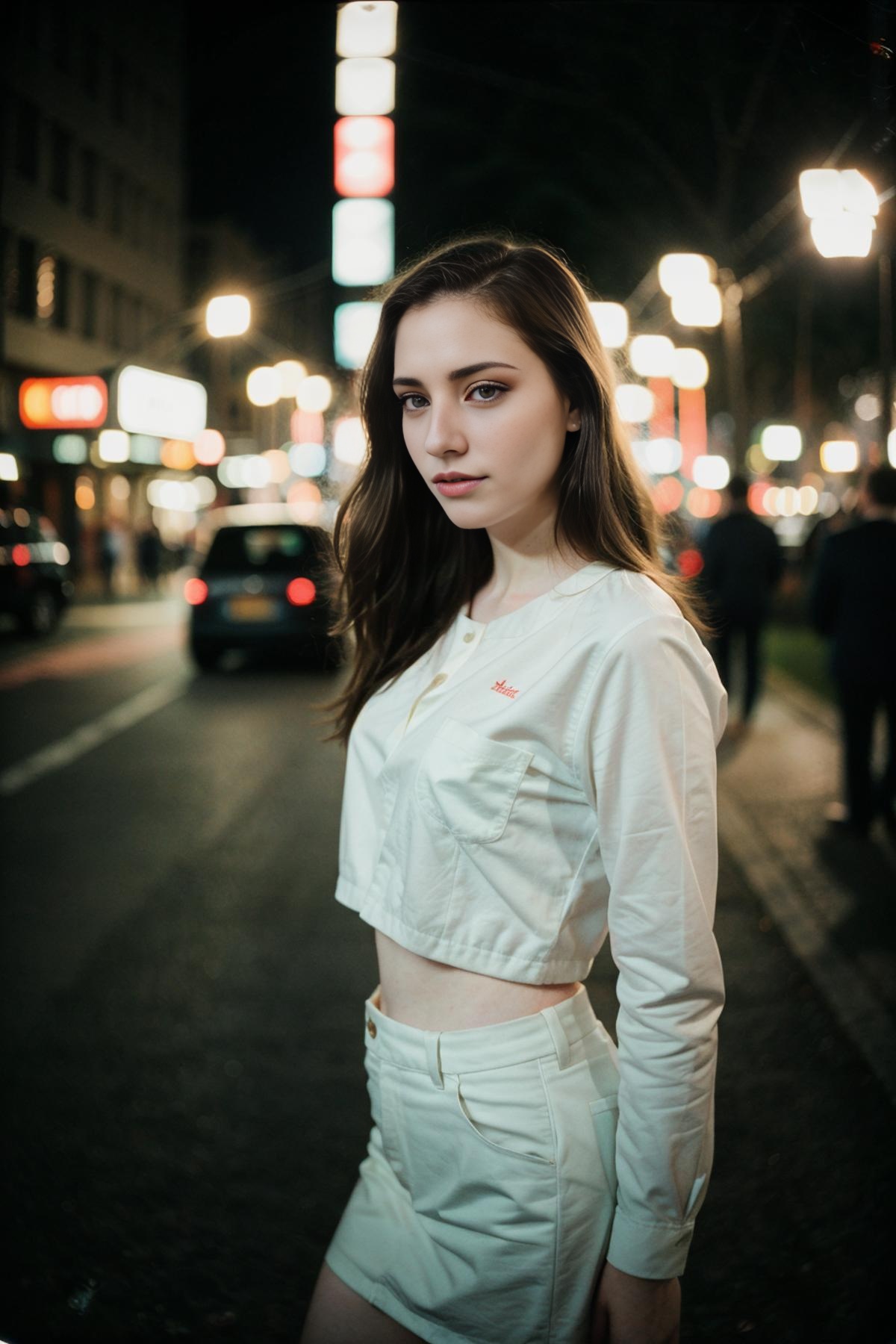Onlyfake - AI Onlyfans Image Generator | Free AI tool
Want to generate realistic and consistant images for your AI onlyfans model Online? Click here!
Introduction
| Target Image | Swap Image | Output |
|---|---|---|
 |  |  |
How to Use Onlyfake: Navigating the Legal Landscape of AI Onlyfans Image Generators
In the ever-evolving digital landscape, the rise of artificial intelligence (AI) has opened up new frontiers in content creation, including the realm of adult entertainment. One such innovation is Onlyfake, an AI-powered image generator designed specifically for OnlyFans creators. This tool promises to revolutionize the way adult content is produced, offering a unique blend of creativity and convenience. However, as with any emerging technology, the legal implications surrounding the use and sale of AI-generated content on platforms like OnlyFans remain a subject of ongoing debate and scrutiny.
Can I use AI images on OnlyFans?
The short answer is yes, you can use AI-generated images on OnlyFans, but with certain caveats and considerations. OnlyFans, as a platform, does not explicitly prohibit the use of AI-generated content. However, it is essential to understand the potential legal risks and ethical implications associated with this practice.
One of the primary concerns surrounding the use of AI-generated images on OnlyFans is the issue of consent and privacy. While AI image generators can create highly realistic and convincing images, there is a risk that these images may inadvertently depict individuals without their consent or knowledge. This raises ethical and legal questions regarding the right to privacy and the potential for exploitation.
Additionally, it is crucial to consider the intellectual property rights associated with the training data used by AI image generators. Many of these models are trained on vast datasets of existing images, some of which may be copyrighted or subject to other intellectual property protections. Using AI-generated images that infringe on these rights could potentially expose creators to legal liabilities.
Is it legal to sell AI-generated images on OnlyFans?
The legality of selling AI-generated images on OnlyFans is a complex issue that has yet to be fully resolved by the legal system. While there are no specific laws prohibiting the sale of AI-generated content, there are several legal considerations that creators should be aware of.
One of the primary legal concerns is the potential for AI-generated images to infringe on intellectual property rights, particularly copyrights and trademarks. If an AI-generated image is deemed to be substantially similar to an existing copyrighted work or incorporates trademarked elements without permission, the creator could potentially face legal consequences.
Another legal consideration is the issue of consent and privacy, as mentioned earlier. If an AI-generated image depicts an identifiable individual without their consent, the creator could potentially face legal action for invasion of privacy or defamation, depending on the specific circumstances.
It is important to note that the legal landscape surrounding AI-generated content is still evolving, and there is a lack of clear precedents and guidelines. As such, creators who choose to sell AI-generated images on OnlyFans should exercise caution and seek legal advice to ensure compliance with applicable laws and regulations.
Is there a completely free AI image generator?
While many AI image generators offer paid plans or subscriptions, there are also several free options available for those looking to explore this technology without incurring any costs. One such tool is Craiyon, a web-based AI image generator that allows users to create images by entering text prompts.
Craiyon is a user-friendly and accessible platform that requires no installation or registration. Users can simply visit the website, enter their desired prompt, and the AI will generate a corresponding image. While the quality and resolution of the generated images may not be as high as those produced by paid tools, Craiyon offers a great starting point for those interested in experimenting with AI image generation.
Another free AI image generator worth considering is Fy! Studio. This tool offers a range of features, including the ability to generate images from text prompts, as well as the option to upload reference images to guide the generation process. Fy! Studio also provides an intuitive interface that allows users to modify and fine-tune their creations, ensuring that the final result aligns with their vision.
It is important to note that while these free AI image generators can be valuable resources for exploration and experimentation, they may not be suitable for commercial or professional use. Many paid tools offer advanced features, higher resolutions, and better quality outputs, making them more appropriate for creators looking to sell or monetize their AI-generated content.
Is AI image generator legal?
The legality of AI image generators is a complex and evolving topic, with various legal considerations and potential risks to be aware of. While the use of AI image generators is not inherently illegal, there are several legal issues that creators should be mindful of.
One of the primary legal concerns is the potential for AI-generated images to infringe on intellectual property rights, particularly copyrights and trademarks. Many AI image generators are trained on vast datasets of existing images, some of which may be copyrighted or subject to other intellectual property protections. If an AI-generated image is deemed to be substantially similar to an existing copyrighted work or incorporates trademarked elements without permission, the creator could potentially face legal consequences for infringement.
Another legal consideration is the issue of consent and privacy. If an AI-generated image depicts an identifiable individual without their consent, the creator could potentially face legal action for invasion of privacy or defamation, depending on the specific circumstances.
Additionally, there are ongoing debates and legal challenges surrounding the ownership and authorship of AI-generated content. While some argue that AI-generated works should be considered public domain or non-copyrightable, others contend that the creators or developers of the AI systems should hold certain rights over the generated content.
It is important to note that the legal landscape surrounding AI-generated content is still evolving, and there is a lack of clear precedents and guidelines in many jurisdictions. As such, creators and users of AI image generators should exercise caution and seek legal advice to ensure compliance with applicable laws and regulations.
Conclusion
Onlyfake and other AI image generators represent a fascinating and innovative frontier in the world of adult content creation. However, as with any emerging technology, there are legal and ethical considerations that must be carefully navigated.
While the use and sale of AI-generated images on platforms like OnlyFans is not inherently illegal, creators should be mindful of potential issues related to intellectual property rights, consent, and privacy. Additionally, the legal landscape surrounding AI-generated content is still evolving, and creators should stay informed and seek legal advice when necessary.
Ultimately, the responsible and ethical use of AI image generators will be crucial in ensuring that this technology continues to thrive and benefit creators and consumers alike. By prioritizing consent, respecting intellectual property rights, and adhering to legal and ethical guidelines, the adult entertainment industry can embrace the potential of AI while mitigating potential risks and challenges.